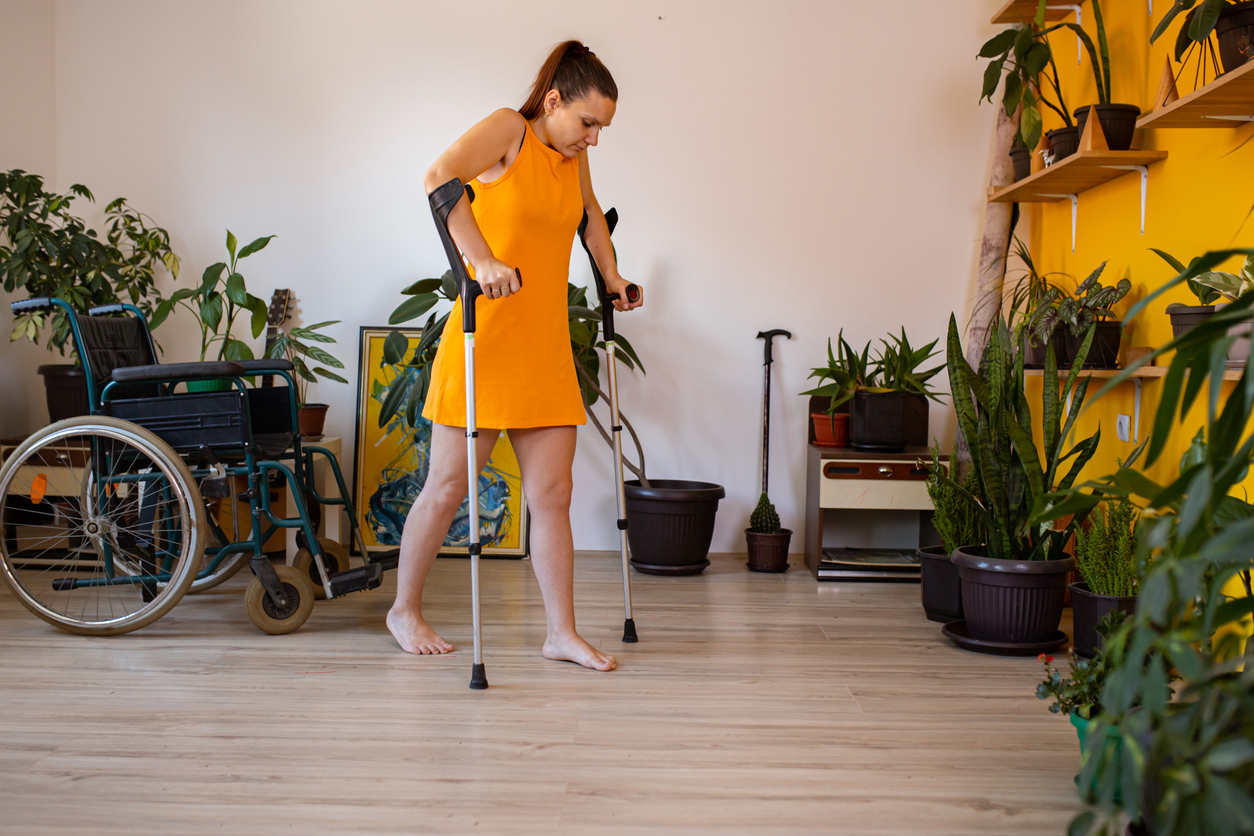Living with Chronic Pain
Coping With Embarrassment of Using a Mobility Device

Mobility devices may be a necessity, yet many people experience embarrassment when utilizing them. Limited mobility negatively affects quality of life; however, social pressure and shame may deter the use of a mobility aid. This is especially true for younger individuals.
The decision to use a mobility device may be frustrating and difficult; however, maintaining mobility and remaining active is often a priority. Mobility aids provide independence, reduce pain, and lower risks of further injuries.
Perceived shame of using a mobility device
Some people view disabilities negatively or as a weakness. There is also a false idea that individuals in a wheelchair cannot walk at all. Society has the perception that a person should walk without help if they are able to, or else they are fragile. Many do not realize that walking or standing independently for long periods is simply impossible for some people.
Why are people embarrassed to use a mobility device?
Oftentimes, individuals with mobility issues are hesitant to use mobility devices, especially if they were previously mobile. Mobility aids are typically associated with physical decline and aging. People may be ashamed that they even need assistance from a mobility device, especially those who are younger.
They may feel as if others view them differently than before they became disabled. Perhaps they want to be remembered as they were before. Additionally, younger people want to resemble their friends and participate in the same activities, without feeling burdensome or that plans need to be altered for them.
Coping with the embarrassment of using a mobility device
There are many ways to deal with embarrassment or shame from requiring mobility assistance, which include the following:
- Ask for a fashionable device. Younger individuals may be more comfortable with a sporty or fashionable mobility device. They can help with self-acceptance and confidence.
- Stop deciding what others are thinking. Unless someone specifically states how they view mobility devices, stop deciding what they are thinking. Their view may be completely different from what one assumes.
- Enjoy activities. Assistive mobility devices not only help individuals with mobility issues accomplish daily tasks and improve their physical functioning, but they also provide a sense of independence. Enjoy participating in activities with family and friends, even with the use of a mobility aid.
- Lose the shame. There is no shame in using a mobility device. Shame belongs to those who are making assumptions.
- Educate others. It is challenging for someone not needing a mobility device to imagine why others do. Take the time to educate them on the reason.
- Be proud. Many people avoid circumstances in which the use of a mobility device is needed. Instead, be proud to do the best you can do and make the most out of any situation.
Additional sources: The Mighty and AnkylosingSpondylitis.net

















